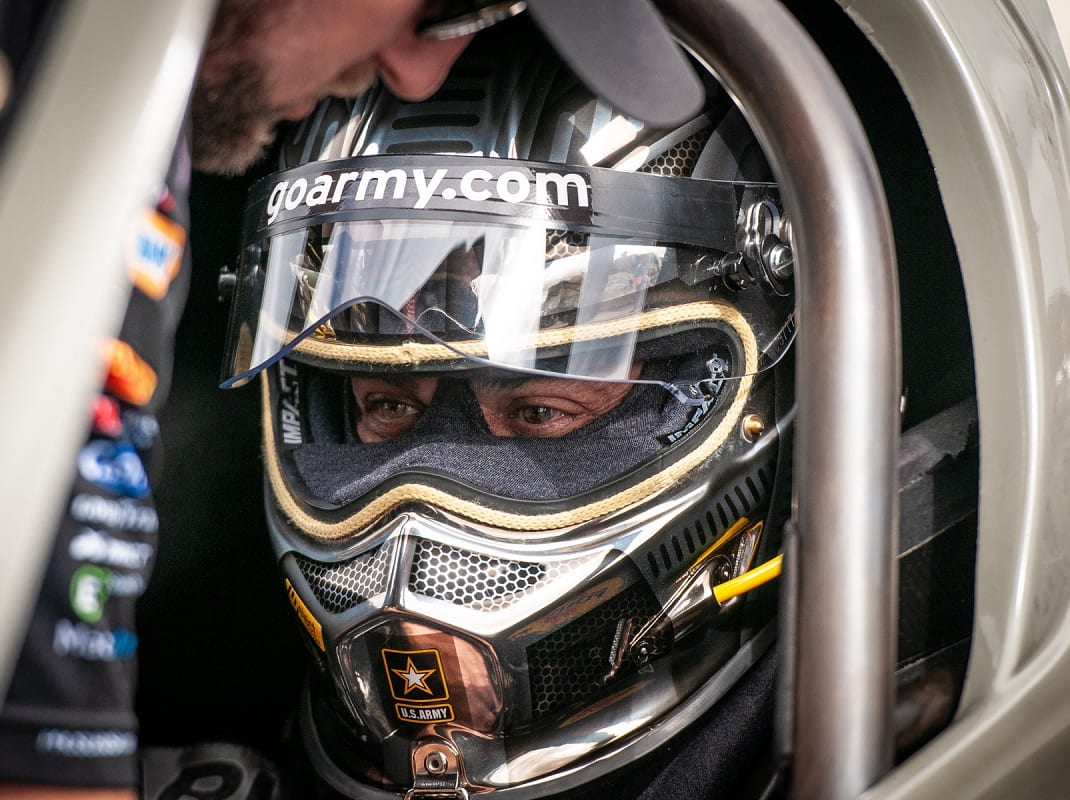The dragster, Schumacher said, “is a great car, an assembled machine, ready to go out and win. People out there that have thought about racing, now’s the time. We are available.”
Schumacher added, “The Yankees don’t come up for sale every day. We’ve heard all too often, ‘the fiscal year … We want to do this, but … ’ Well, let me explain how this works. When the Yankees pop up for sale, you may not have the budget set aside for the Yankees popping up — but you find it, because it’s not coming around for a long time.
“What’s going to happen is somebody’s going to pick up that team and whoever does it is going to get me for five years or longer. They’re not going to do a one- or two-year deal. This business-to-business deal that we do at DSR is second to none. If you want that opportunity, now is the time.”
Tami Powers, director of business development/operations at Alan Johnson Racing, understands what Schumacher is going through.
She has the respect of many teams beyond her own and has poured hours upon countless hours into efforts to draw Corporate America into drag racing.

It’s a lightning-quick, immediate-gratification, extreme sport that should be right in the wheelhouse for Millennials and Gen-Z/iGeneration/Post-Millennials — who form the prime target audience. Yet, for some reason, it isn’t.
It’s her contention that NHRA drag racing “should be the easiest, no-brainer buy-in for any motorsport, based on value, ‘the show,’ entertainment, the direct-to-consumer opportunities, the open platforms, the diversity and the fact that our fans earn more money and are more educated. All these new marketing executives coming in, they don’t know about us. They don’t see us enough. There’s something broken. We’ve got to figure out how to solve a solvable problem.”
She, too, wonders why an eight-time Top Fuel champion has no sponsor.
“When you have somebody like Tony Schumacher who is sitting out, there’s a problem,” Powers said. “It goes back to the missing link with the sanctioning body. It would be helpful if the NHRA would change something to where they could learn from the people who are super-successful at this and be open to learning new strategies. That’s what we need as teams.”
Powers added, “We need to be in New York, pulling up a Top Fuel dragster, like Kenny Bernstein did (in St. Louis to secure Budweiser sponsorship) and light that sucker up on Madison Avenue, if we have to. And I don’t see anybody doing that. You’ve got to reach these people. You’ve got to razzle and dazzle them, because there’s a lot of clutter out there. The NHRA needs to compete and go up to the line like those Top Fuel cars do.
“They need to go up to the line against other sports and shout from the rooftops why these brands should be buying into our sport.”
Unless NHRA officials can help the team pavement-pounders do that, more racers will struggle — and Tony Schumacher, who has built impressive statistics, will be left on the sidelines.
